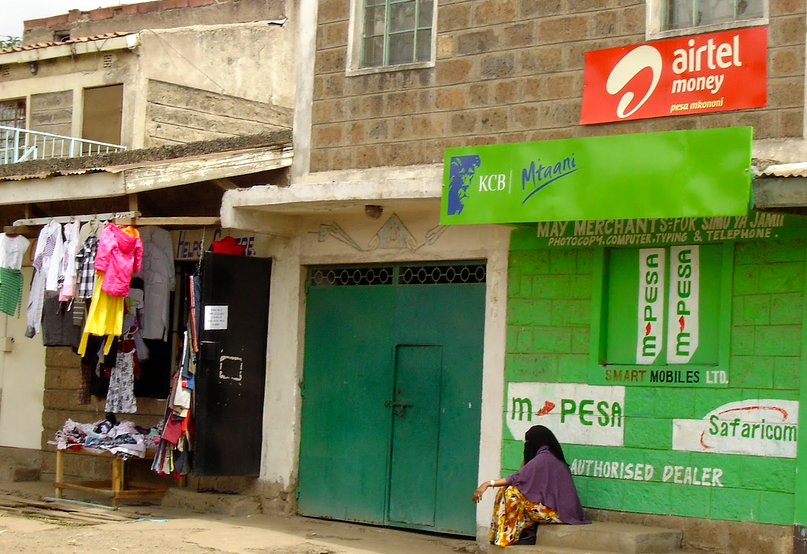At the beginning there were Kenya and Tanzania – I’ve visited them both last December and I can tell you local stores typically look like this one [photo source]. Afghanistan, India, South Africa, Mozambique and Egypt followed. Romania’s next. The first European market.
It doesn’t look too flattering of an entourage for Romania, indeed. Yet, if we follow the figures, there’s a lot of business logic in choosing Romania as the first European market to test a mobile-phone based money transfer service that doesn’t require a bank account. Less than 50% of its citizens have an active bank account – this makes Romania more like India, with 35% citizens with a bank account, or Tanzania, with less than 20%, than like Poland (70%), Hungary (83%), or the European Union as an average (93%) [source in Romanian]. Meanwhile though, if we’re talking about mobile phones… well,130% of the Romanians have one, statistics say [source in Romanian].
It’s uncharacteristic for Vodafone to launch a new service with no loud, reverberating communication campaign, but that’s what the telecom giant did with M-Pesa in Romania. It’s a sign Vodafone went on with a small – and riskless – steps for a strategy. (I expect medium sized and small towns, as well as rural areas to be of strategic importance in promoting the service).
The new service is operated by a separate company, Vodafone Romania M – Payments SRL, established for this purpose last year – that’s because the whole thing basically works as a bank, so Vodafone needed special autorization from the central bank, as the Romanian law requires. [source in Romanian]
Does the brand name of the service sound kind of weird? Well, you’re right – that’s because it’s inspired by an unfamiliar, Swahili word [pesa = money]. M-Pesa – M-Money, translated in English – is a triumph in countries like Kenya and Tanzania. Why is that? I wrote about the roots of the service’s success on this blog last summer [here in Romanian] – I also anticipated, then, that Romania would be a great testing market.
I can testify there are countries in Africa where you can starve to death with a fat credit card in your pocket. You definitely need cash if you want to move around – or, much better, you need access to a service like M-Pesa. The reasons are so obvious: few ATM machines, the danger of carrying cash and so on.
Here’s a video from Kenya relevant for the product’s target and positioning:
Fairly well documented articles about Vodafone’s quiet launch in Romania you can read in the international media: PCWorld, Gigaom, Reuters or… Sydney Morning Herald.
The author of the Sydney Morning Herald’s article has a worth quoting opinion indeed: “The fact that Kibera residents, and now Romanian farmers, can use this futuristic form of money is making me jealous. Technology developed for the “financial inclusion” of the poor could change the rich world for the better“.
As a conclusion, I’d say M-Pesa in Romania is a logical, interesting and bold experiment groomed by a Vodafone business unit led by the same person – Andrea Rossini [source in Romanian] – that engineered another innovative pilot-project with Romania as a testing ground: Indygen.
The future of cash payments is more and more doubtful, while payments made using systems like Bitcoin or with the mobile phone increasingly look like inroads for the revolution to come. It’s unavoidable, I think.
PS You can also watch at the company’s dedicated page some truly explanatory videos.

